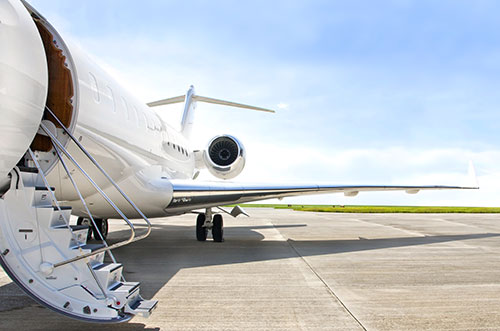The Private Jet Boom
The private aviation industry is experiencing a remarkable surge in 2025. Business travelers, who were once loyal to premium commercial cabins, are increasingly booking private jets and semi-private flights. According to VistaJet, corporate requests for private jet services have tripled in early 2025 compared to the same in 2024 while overall private jet activity has seen growth in 20 of the past 24 weeks.
This trend signals a fundamental shift: executives and entrepreneurs no longer view private aviation as indulgence, but as a time-saving productivity tool.
Why Executives Are Leaving Business Class Behind

- Efficiency as the New Luxury – Flying private allows executives to visit multiple cities in a single day and return home the same night, which is something commercial schedules rarely permit. As one traveler put it: “you can visit three cities in a day and come back home to sleep in your own bed.”
- Semi-Private Options Expand Access – Operators like JSX, Aero, and Wheels Up are redefining the private jet experience with semi-private models; book-a-seat flights that deliver private-style perks without the full charter cost. Technology platforms are further reducing friction, making booking faster and more transparent.
- Business First, Status Second – Unlike the stereotypical luxury-driven narrative, today’s private aviation clients are motivated by time savings, flexibility, and ROI rather than prestige alone.
Market Outlook: Deliveries and Growth
The demand boom is supported by supply growth. Honeywell projects a 12% increase in global business jet deliveries in 2025, which is the steepest since 2019.
Industry analysts expect private operators to log more flight hours this year than last as businesses normalize private travel as part of their standard operations.
Private Jets as the Ultimate Status Symbol
Beyond practicality, private aviation has become the number-one market of wealth, surpassing yacht and luxury real estate. The Wall Street Journal recently reported that ownership or frequent use of private jets is the ultimate signifier of financial success in 2025.
This dual identity (status symbol and productivity, tool) strengthens private aviation’s cultural and economic position.
What This Means for the Private Aviation Industry
- Operators: A reliable, year-round revenue base fueled by corporate clients, not just leisure travelers.
- Charter and Semi-Private Services: Greater opportunity to capture business travelers priced out of full private jet ownership.
- Investors: A strong case for viewing private aviation not as discretionary spending, but as critical business infrastructure.
- Supporting Services: From jet detailing and hangar management to concierge partnerships, ancillary businesses stand to benefit from increased flight hours.
Fast Facts: Private Aviation 2025
- Corporate and private jet requests up 3x year over year (VistaJet).
- Private jet activity showed Y/Y growth in 20 of the last 24 weeks.
- 12% increase in business jet deliveries forecasted in 2025.
- Private jet use is now considered the top wealth marker (WSJ).
In Summary:
The rise of private aviation in 2025 isn’t just a luxury trend, it’s a structural evolution of how business travel works. Efficiency has replaced opulence as the core value and private jets deliver what even first and business class cannot: time, flexibility, and control.
For operators, this is a call to scale smartly. For business travelers, it’s validation that private aviation is no longer niche; it’s becoming essential.


